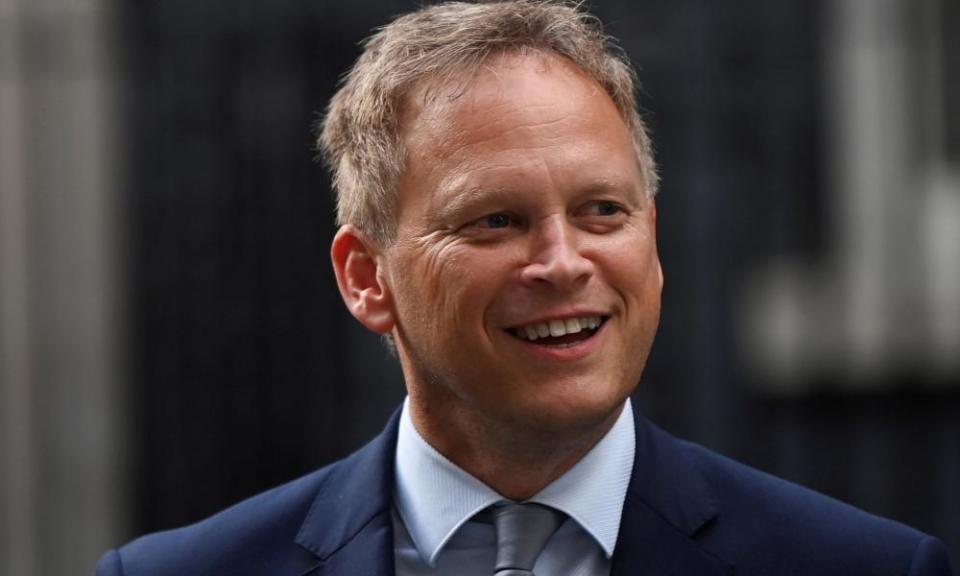Grant Shapps hits out at ‘manufactured’ crisis as drivers panic-buy fuel

Drivers refuelling their vehicles unnecessarily are causing shortages and queues outside forecourts across the country, the UK transport secretary, Grant Shapps, has said, as he hit out at what he called a “manufactured” crisis.
Ministers are scrambling to avert further panic-buying, after a lack of about 100,000 delivery drivers led to some BP petrol stations having to close and to pump shortages at Esso. Emergency measures to allow 5,000 foreign truck drivers into the country to help were approved by the cabinet on Friday, after a split about whether to ease post-Brexit immigration rules.
Playing down the threat of a lack of fuel, Shapps said there were no supply problems at the six refineries and 47 storage facilities across the UK, and he turned his ire on some motorists, telling them to “be sensible”.
“The most important thing is, if people carry on as they normally would and fill up their cars as they normally would, then you won’t have queues and you won’t have shortages at the pump either,” he told Sky News’ Trevor Philips on Sunday show.
“It’s not like we don’t have fuel in the country. We do need to just ensure people are filling up when they need to fill up, rather than thinking I’d better go and fill up now just in case I need it next week or the week after.”
Shapps was hopeful the situation would resolve itself quickly and not last as long as the panic-buying seen during the first lockdown. “Sooner or later, everyone’s cars will be more or less filled up and there won’t be anywhere else to put fuel,” he said, adding that it was unlike the stockpiling of toilet roll last March.
Shapps blamed “one of the road haulage associations” for leaking details about heavy goods vehicle (HGV) driver shortages at fuel firms, saying that had “helped to spark a crisis” that had proved “very, very unhelpful”.
He claimed the leak came from a meeting about 10 days ago and that one of the attenders briefed the details to the press. “That has created, as we’ve seen, quite a large degree of concern,” the transport secretary said. “People naturally react to those things.”
The Guardian understands Shapps was referring to a briefing between industry stakeholders and Whitehall officials last week. It was a regularly scheduled gathering, designed for businesses to flag issues privately with the government, but BP’s admission about its HGV driver shortage was passed on to ITV News and reported within 48 hours.
Shapps defended the announcement that only 5,000 visas would be issued for foreign HGV drivers to stem the crisis, saying it was not a UK-specific problem and that he was also appealing for 1 million workers who hold an HGV licence – some of whom have retired, fallen out of work or switched jobs – to return.
The Labour leader, Keir Starmer, said the number of visas to be issued was “far, far too small” and up to 100,000 were needed – equal to about the size of a small city. “We have to issue enough visas to cover the number of drivers that we need,” he told the BBC’s Andrew Marr show. Starmer admitted it was “not an ideal response, it’s a short-term response” to the immediate crisis.
He accused ministers of a “lack of planning”, adding: “We knew in particular that when we exited the EU there would be a need for a backup plan to deal with the situation and there’s no plan from the government on this.”

 Yahoo Finance
Yahoo Finance 